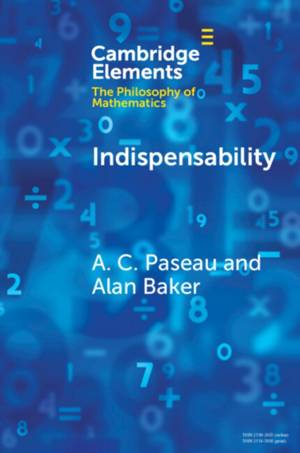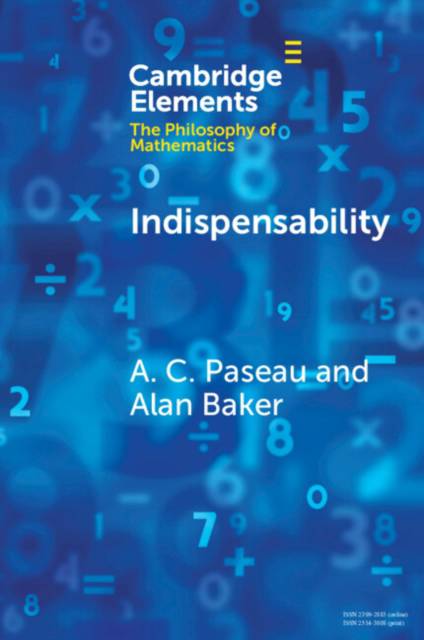
- Afhalen na 1 uur in een winkel met voorraad
- Gratis thuislevering in België vanaf € 30
- Ruim aanbod met 7 miljoen producten
- Afhalen na 1 uur in een winkel met voorraad
- Gratis thuislevering in België vanaf € 30
- Ruim aanbod met 7 miljoen producten
Zoeken
Omschrijving
Our best scientific theories explain a wide range of empirical phenomena, make accurate predictions, and are widely believed. Since many of these theories make ample use of mathematics, it is natural to see them as confirming its truth. Perhaps the use of mathematics in science even gives us reason to believe in the existence of abstract mathematical objects such as numbers and sets. These issues lie at the heart of the Indispensability Argument, to which this Element is devoted. The Element's first half traces the evolution of the Indispensability Argument from its origins in Quine and Putnam's works, taking in naturalism, confirmational holism, Field's program, and the use of idealisations in science along the way. Its second half examines the explanatory version of the Indispensability Argument, and focuses on several more recent versions of easy-road and hard-road fictionalism respectively.
Specificaties
Betrokkenen
- Auteur(s):
- Uitgeverij:
Inhoud
- Aantal bladzijden:
- 75
- Taal:
- Engels
- Reeks:
Eigenschappen
- Productcode (EAN):
- 9781009096850
- Verschijningsdatum:
- 8/06/2023
- Uitvoering:
- Paperback
- Formaat:
- Trade paperback (VS)
- Afmetingen:
- 152 mm x 229 mm
- Gewicht:
- 99 g

Alleen bij Standaard Boekhandel
+ 63 punten op je klantenkaart van Standaard Boekhandel
Beoordelingen
We publiceren alleen reviews die voldoen aan de voorwaarden voor reviews. Bekijk onze voorwaarden voor reviews.











